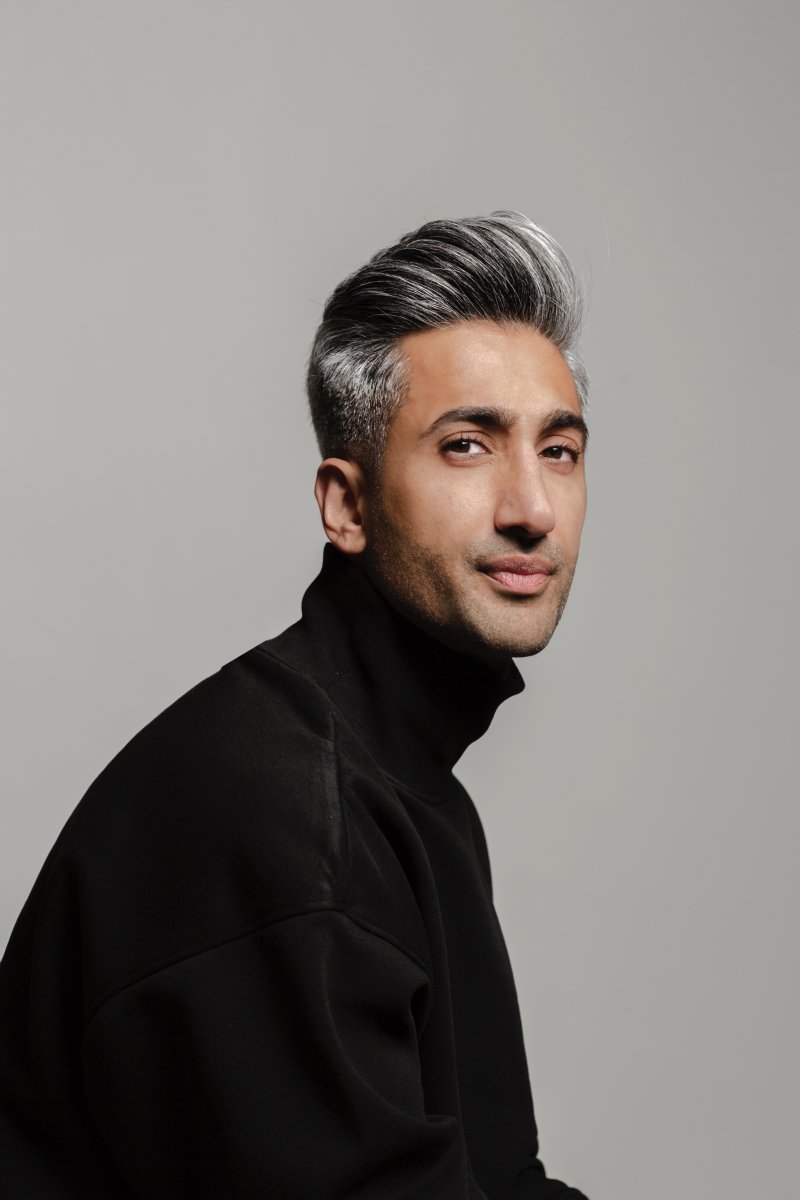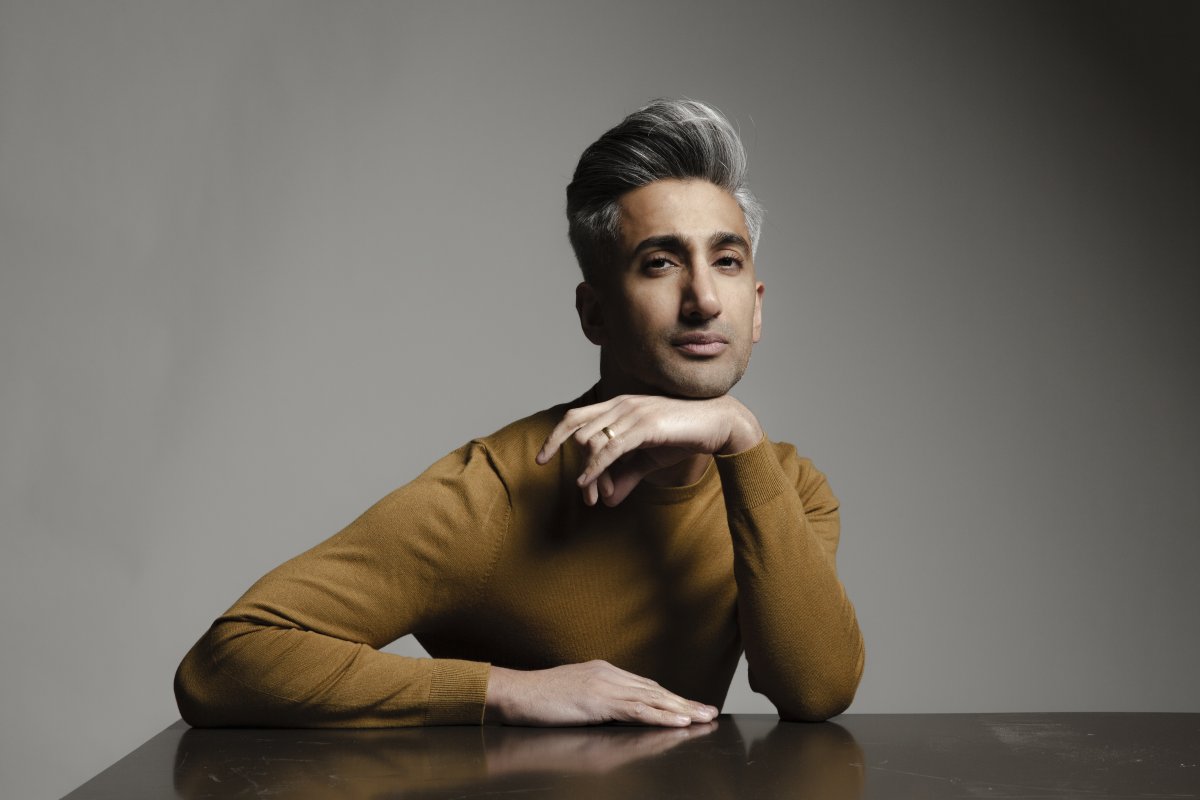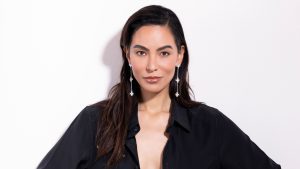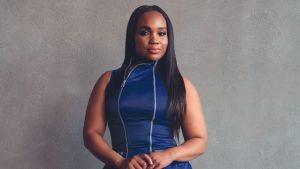While most of the world recognizes Tan France for his universally beloved role as a fashion expert on Netflix’s Queer Eye, the British-American designer’s impact on the industry began long before he entered the mainstream spotlight of the media. Instead, the earliest origins of his fashion career were defined by a string of entrepreneurial triumphs. Acting as a designer and director for Zara after graduating college, he made several stops around the industry before immigrating to the United States and founding his first independent fashion line, Kingdom & State, in 2011.
The label included clothes designed specifically to meet Mormon clothing guidelines on modesty, a group that represented a significant population in Utah, where France was living and still resides today. But despite the brand’s success, France’s intention to start a family led him to selling his business and moving towards retirement. Of course, that was until Netflix approached him with the opportunity to star in Queer Eye, a show that aligned perfectly with France’s belief in the transformative power of style and granted him an Emmy nomination in 2020.
Now, after firmly establishing himself as one of the most dynamic and successful leaders in both business and fashion, France’s endeavours also include supporting the business leaders of tomorrow through his partnership with Amex Canada and their Business Gold Rewards Card. The card has been redesigned for the evolving needs of Canadian small business owners to offer more flexibility to those hoping to follow in France’s footsteps. Below, the global fashion icon outlines the purpose behind this partnership, the evolution of his business acumen, Queer Eye, and life outside the spotlight.
[vc_row][vc_column][vc_text_separator title=”Q&A” color=”orange” border_width=”3″][/vc_column][/vc_row][vc_row][vc_column][vc_column_text]
What is your first memory around fashion and style? What did it mean to you growing up?
Tan France: I was always very aware of the things that I was wearing and what I was putting on my body. In my home, we wore modest clothing. We’re Muslim and were raised Muslim, also. And we were also South Asian. So, that meant that we didn’t wear a lot of Western clothing as children because they were slightly more revealing than what we were allowed to wear. But when my parents were at work—they were immigrants so they worked every hour that God sent—I would watch Western TV without them knowing. I fantasized about dressing in Western clothing or what my family called “white people clothing.”
My granddad had a factory where he made denim—jeans, jackets, vests, whatever. And I started learning what that world was like when I was about seven. Then by the time I hit my early teens, I was able to make a full pair of jeans and a full denim jacket as if it was going to be sold at a retail store. So very early on, I realized that that was probably going to be my path because I saw what you could do with this bolt of fabric. I could put that thing on and express myself in a way that I never could in my Eastern clothes. It made me feel powerful.
What does style mean to you in a larger sense outside of being able to put together an outfit? Why is it important to you and to other people?
Tan France: I’m on another show called Queer Eye and often people will say, “Oh, I don’t care about the fashion component. I don’t care about style.” It’s more, “I want to learn to cook” or “I want my house stuff.” And I’m like, “No, this is a really important component”. When you look in the mirror, how do you view yourself? How do you treat yourself? Are you kind to yourself? It’s usually a “no.” Do you walk into a room confidently? “Absolutely not.” So let me help with that. For me, I used clothes as a vehicle to help people build their self-esteem.
To give you an example, during the start of lockdown last year, I thought it was only going to last a couple of weeks. I was in pajamas all day, every day, thinking I’ve got two weeks off. I thought, I’m not going to put my outfit together, I’m just going to wear pajamas. Who cares if they get dirty? After about two or three days, I’d walk past the mirror and just feel [awful.] So I thought, “well, let me just put something on that makes me feel good.” It can be casual. There’s still sweats but at least it’s more me. It’s amazing what it did for my morale and my mental health. It just made me feel like I’ve made at least some effort in the day. I felt like I cared about myself.
You’ve got five seasons of Queer Eye under your belt now. What’s the biggest thing that you’ve learned about yourself throughout that whole experience?
Tan France: Quite honestly, that the thing that I take for granted, my ability to sell myself, is so much more impactful than I ever imagined and can make such a difference to somebody’s life. That is truly how I feel when I go into somebody’s home, when I help dress them and they feel like a new person, and they behave like a new person. People have been making fun of me for years for caring about clothes. For the first time, I feel validated thinking, “Okay, I’m actually doing something special here.” So that’s what I’ve learned; the importance of how we present ourselves to the world.
What have you learned about what people can do to feel confident and capable in their own lives?
Tan France: I’ve learned that people sometimes just need to be reminded that they have every right to express themselves the way they want to express themselves. So often we think, “oh, this person’s going to think I’ve…”—there’s a term in England called—“got tickets on myself. That I’m vain.” I think that that’s what we do a really good job of in all of our five verticals by saying, “you can show up in any of these areas and you should feel proud of those things.” You don’t need to wait for anybody else to tell you that you should do them. You can do this.


How have you learned to protect your joy? What kind of safeguards have you deployed to protect your mental health?
Tan France: I don’t use social media as much as I used to. […] I don’t need to listen to everybody’s opinion on my life. Many people on my social [media] have an opinion, but I don’t need to hear it. And I think that the greatest component for me is realizing that even though some comments that I’ll see online and in the press are harsh, I think, “That’s fine.” […] I’ve got a husband that loves me, I’ve got friends who I’m very close with, I’ve got people who see my humanity.” And that’s what protects my mental health in this industry.
Prior to Queer Eye, you were also busy running your own businesses. Can you briefly talk about your entrepreneurial journey?
Tan France: I had a really good job before. I was a director of a company, I was earning a wonderful salary, and then left it all to start my business. It was one of the most difficult times of my life. I’d been doing it for two years and hadn’t seen any profit. I was broke as a joke. I couldn’t afford to go out for coffee with friends or dinner, and I’d just tell them, “Look, I will see you all again and I’ll hang out outside of the house in the next couple of years, but right now, I’m focusing on my business. Every penny that I earn goes back into my business. I can’t do all the fun things that you guys are doing. That’s just the way my life is.”
After a couple of years, it really started to work but it was hard. Payments were really hard. I’m with American Express and I’m very particular about the partnerships I do. I was an entrepreneur, and it was such an important part of my life and I really struggled financially those first couple of years. So, when they reached out and told me about the American Business Gold Rewards Card, that was an option that was not available for me that would have changed my life as an entrepreneur. […] Life has changed a lot within the last decade. And that’s why if I were a business owner today, it would have been a very different situation with Americans Express’ card.
What is your mission at the end of the day? What’s the bigger picture for you? What guides your decisions that you make every day?
Tan France: Oh my gosh, it’s changed now. Now that I’m a parent, it’s amazing how much that shifted my perspective. My son is half-Pakistani, I’m full-Pakistani. It’s a case of doing everything I can to make sure that my son knows that he is equal to anybody else out there and that his race will not work against him. So that’s what I’m working towards.
RELATED: 6 Canadian BIPOC-Led Brands That Are Diversifying the Beauty Counter












